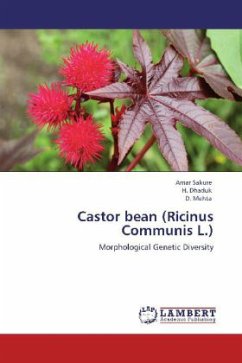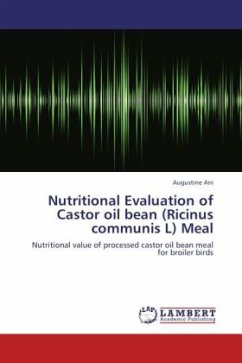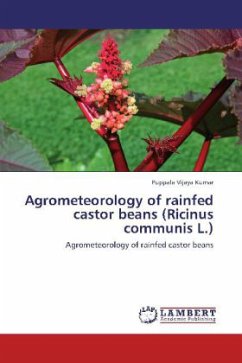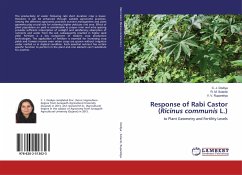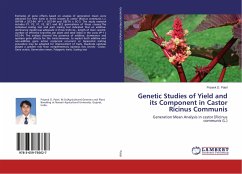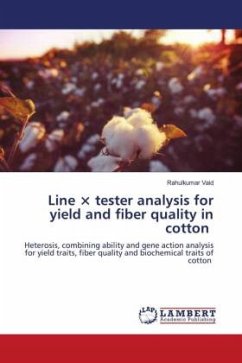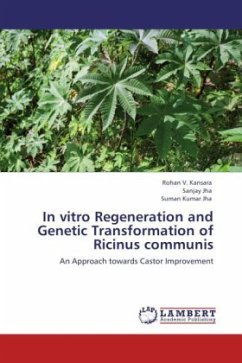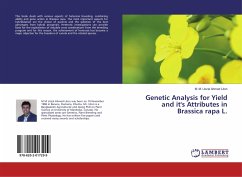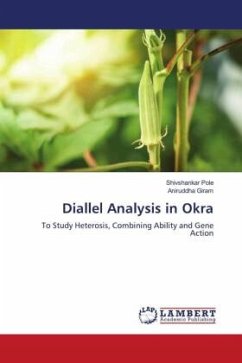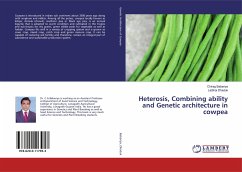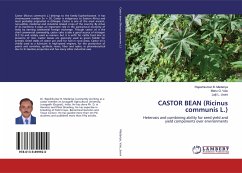
CASTOR BEAN (Ricinus communis L.)
Heterosis and combining ability for seed yield and yield components over environments
Versandkostenfrei!
Versandfertig in 6-10 Tagen
47,99 €
inkl. MwSt.

PAYBACK Punkte
24 °P sammeln!
Castor (Ricinus communis L.) belongs to the family Euphorbiaceae. It has chromosome number 2n = 20. Castor is indigenous to Eastern Africa and most probably originated in Ethiopia. Castor is one of the most ancient, non-edible, medicinal and industrial oilseed crops of the country. By virtue of its hardiness it plays an important role in the agricultural economy of India by earning substantial foreign exchange. Though castor oil is the chief commercial commodity, castor cake is also a good source of nitrogen (5.5 %) and widely used as manure but it is unfit for cattle feed due to presence of r...
Castor (Ricinus communis L.) belongs to the family Euphorbiaceae. It has chromosome number 2n = 20. Castor is indigenous to Eastern Africa and most probably originated in Ethiopia. Castor is one of the most ancient, non-edible, medicinal and industrial oilseed crops of the country. By virtue of its hardiness it plays an important role in the agricultural economy of India by earning substantial foreign exchange. Though castor oil is the chief commercial commodity, castor cake is also a good source of nitrogen (5.5 %) and widely used as manure but it is unfit for cattle feed due to presence of ricin. Castor leaves are generally used as green fodder for animals. Dried stalks of castor are used for fuel in rural areas. Castor oil is chiefly used as a lubricant in high-speed engines, for the production of paints and varnishes, synthetic resins, fiber and nylon, in pharmaceutical due to its laxative properties and has many other industrial uses.



